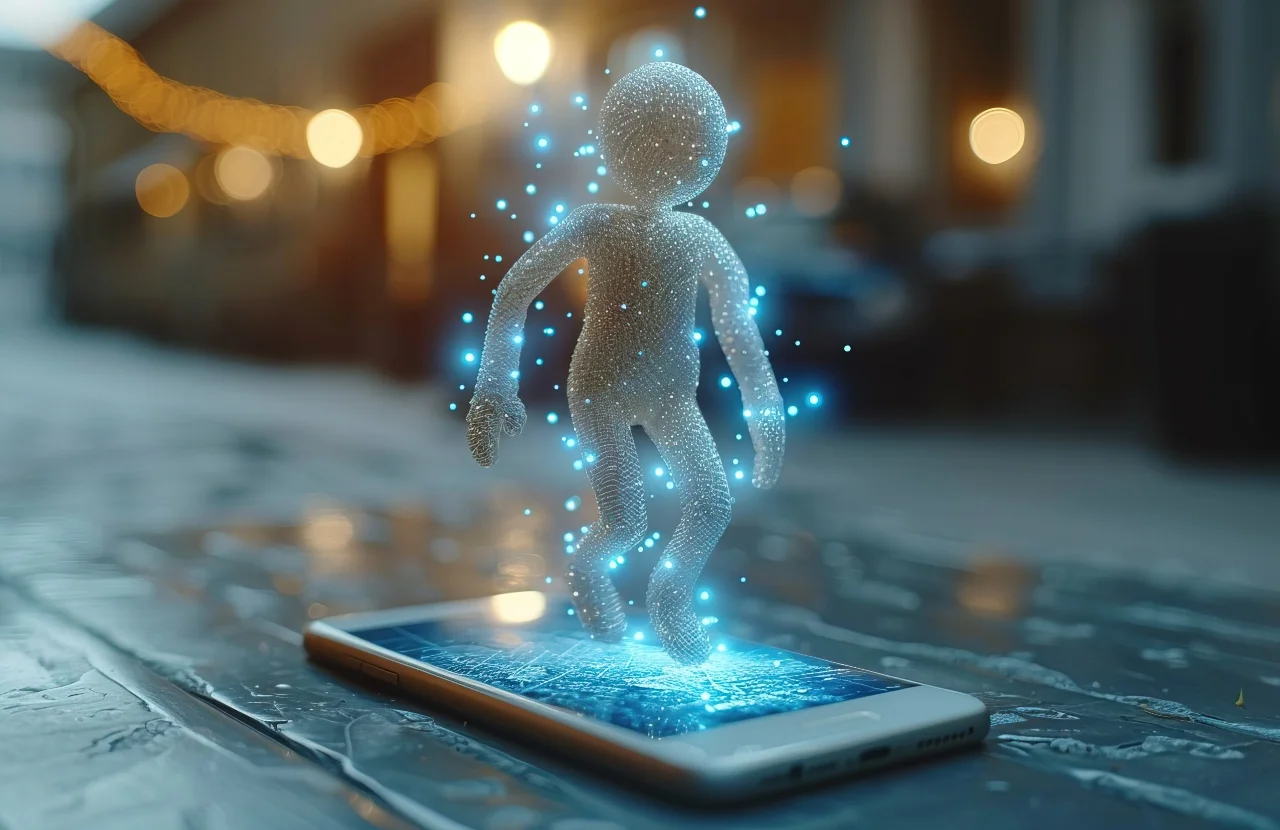NEWS
Tech Giants Envision Future Beyond Smartphones

Smartphones have long ruled the tech landscape, becoming an essential part of our lives. Nearly everyone is glued to their screens, scrolling through social media or catching up on the latest news. However, as we move deeper into a digital age filled with innovation, it seems that these pocket-sized devices may not hold the throne for much longer. Tech giants are exploring new frontiers that could redefine how we interact with technology. From virtual reality to artificial intelligence and beyond, a wave of emerging technologies promises to transform our daily experiences in ways we’ve only begun to imagine. Are you ready to dive into this exciting future?
Emerging technologies and their potential to replace smartphones
As we look ahead, emerging technologies are poised to change how we interact with the digital world. Smartphones have dominated for over a decade, but innovation is paving the way for alternatives.
Wearable devices, like smart glasses and wristbands, offer hands-free communication and information access. Imagine receiving notifications directly in your field of vision or checking vital stats by simply glancing down at your wrist.
Holographic displays could transport digital content into our physical spaces. This technology allows users to engage with 3D images seamlessly integrated into their environment.
Voice-activated systems are also gaining traction. They simplify tasks without needing a screen, making interactions more natural and intuitive.
These advancements suggest that smartphones may soon be just one part of a larger ecosystem of connected devices. The future of personal tech looks bright as these innovations redefine convenience and connectivity in everyday life.
Virtual and augmented reality: blurring the lines between physical and digital worlds
Virtual and augmented reality are reshaping our interaction with technology. These immersive experiences let users step into new realms where the boundaries of the real world begin to fade.
Imagine walking through your living room, but instead, you’re exploring a vibrant rainforest or navigating a futuristic city. With VR headsets, this is now possible. Users can escape their environment and engage in interactive storytelling like never before.
Augmented reality takes it further by overlaying digital elements onto the physical world. Users can see virtual objects seamlessly integrated into their surroundings using smartphones or AR glasses. This creates endless possibilities for communication and learning.
Tech giants are investing heavily in these technologies to create more intuitive user experiences. By merging physical spaces with digital content, they open doors to innovative applications—from gaming to education and beyond—transforming how we perceive reality itself.
Artificial intelligence: making devices smarter and more intuitive
Artificial intelligence is revolutionizing how we interact with our devices. No longer just tools, gadgets are becoming intuitive companions.
AI algorithms analyze user behavior to predict needs and streamline tasks. Imagine a smartphone that learns your routines and preferences, adjusting settings automatically without prompting. This level of personalization enhances efficiency in ways we once thought impossible.
Voice assistants exemplify this shift. They can hold conversations, understand context, and even manage multiple commands simultaneously—transforming user experiences from mundane to seamless.
Moreover, machine learning enables these systems to improve over time. As they gather data about usage patterns, they become better at anticipating actions or suggesting solutions before users even realize they need them.
With AI integration deepening across platforms—from smart home devices to wearables—the potential for enhanced connectivity is limitless. Tech giants are leading the charge in creating smarter ecosystems that adapt dynamically to individual lifestyles.
Internet of Things: connecting all aspects of our lives seamlessly
The Internet of Things (IoT) is revolutionizing how we interact with the world around us. Imagine your coffee maker brewing your morning cup as soon as your alarm goes off. This seamless connection makes life easier.
Smart devices communicate effortlessly, creating a unified ecosystem in our homes. From smart thermostats adjusting temperatures based on preferences to wearable fitness trackers monitoring health metrics, IoT integrates functionality into daily routines.
As tech giants invest further in IoT, they envision smarter cities where traffic flows efficiently and public services are optimized for convenience. Smart sensors can manage everything from waste collection to energy use, minimizing environmental impact while enhancing quality of life.
The potential is vast; however, it also raises questions about privacy and security. As these devices collect data continuously, users must consider how their information is managed and protected in this increasingly interconnected landscape.
The impact on society and daily life
The shift away from smartphones will reshape how we interact with the world. Imagine walking through a city where augmented reality overlays information on every building, enhancing our understanding of history and culture.
Daily tasks could become seamless. Smart home devices might anticipate our needs, adjusting lighting or temperature before we even walk in the door.
Social interactions may evolve too. Virtual spaces can bring friends together regardless of distance, creating more meaningful connections.
However, this new landscape comes with its own set of challenges. Privacy concerns grow as devices gather more personal data to enhance user experience.
As technology giants push forward, society must adapt to these changes while navigating potential pitfalls that accompany innovation. The blend of physical and digital worlds promises excitement but requires careful consideration about how it influences everyday life.
Challenges and concerns surrounding this future beyond smartphones
As tech giants push for a future beyond smartphones, several challenges arise. Privacy concerns are at the forefront. With devices becoming more interconnected, data sharing increases exponentially. Users may feel uneasy about how their personal information is being utilized.
Then there’s accessibility. Not everyone can easily adapt to advanced technologies like virtual reality or AI-driven interfaces. This shift could widen the digital divide between those who can afford and understand these innovations and those who cannot.
Security also poses significant risks. As we rely on smart devices to manage our lives, vulnerabilities increase. A breach in one device could have ripple effects across an entire ecosystem of connected gadgets.
There’s a cultural adjustment needed for society as a whole. Moving away from familiar touchscreens requires not just technical adaptation but also shifts in behavior and expectations surrounding communication and interaction.
Conclusion: What does this mean for the future?
As tech giants pivot away from the smartphone-centric world, we are on the cusp of a technological revolution. The emergence of virtual and augmented reality will redefine how we interact with digital content. Imagine stepping into a meeting room without leaving your home or experiencing immersive gaming like never before.
Artificial intelligence is also set to make our devices not only smarter but more intuitive. These advancements will lead to personalized experiences that anticipate our needs, making technology truly seamless.
The Internet of Things promises to connect everything around us—from home appliances to wearable devices—creating an ecosystem where data flow enhances daily life. This interconnectedness could streamline tasks and improve efficiency in ways we’ve yet to imagine.
However, this transformation brings challenges and concerns as well. Issues such as privacy, security, and dependency on technology need careful consideration. As society adapts to these innovations, finding balance will be crucial.
What does all this mean for the future? It suggests a shift toward an integrated existence where smartphones might become relics of the past. The next wave of innovation led by tech giants holds infinite possibilities for redefining communication, work, and play in ways that enhance human experience while addressing its complexities.

-

 Cast9 months ago
Cast9 months agoRico Rodriguez
-

 Episode Guide9 months ago
Episode Guide9 months agoHalloween episodes
-

 Cast9 months ago
Cast9 months agoCast
-

 Guest Star9 months ago
Guest Star9 months agoValentine’s Day episodes
-

 Cast9 months ago
Cast9 months agoSarah Hyland
-

 Cast9 months ago
Cast9 months agoWho is your favourite character?
-

 Guest Star9 months ago
Guest Star9 months agoGuest Star: Khamani Griffin
-

 Episode Guide9 months ago
Episode Guide9 months agoEpisode Guide : Season 1